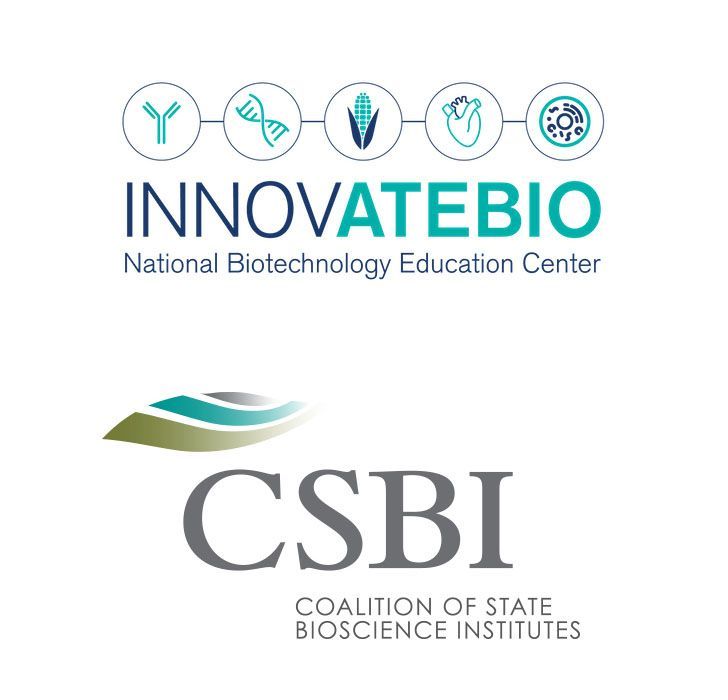Summit convened diverse stakeholders in a state ecosystem approach aimed at meeting industry’s urgent workforce gaps
June 30, 2023 | WASHINGTON–( BUSINESS WIRE )–Coalition of State Bioscience Institutes (CSBI) and InnovATEBIO convened a national Summit this week at the National Academies of Sciences in Washington, D.C., tasked with developing workforce strategies designed to sustain U.S. leadership in life sciences innovation. Both national organizations and their multi-state members helped to comprise over 250 attendees for the National Science Foundation- (NSF-)supported Envisioning the Next Bioscience Workforce Summit , which brought together thought leaders from industry, academia, and government to forecast the continuing wave of discoveries and corresponding talent needs from the industry’s biopharmaceutical, biomedical device, bioprocessing, bioengineering, synthetic biology, and food production subsectors.
The first-of-its-kind assembly of diverse public and private stakeholders were brought together by InnovATEBIO, an NSF-funded National Advanced Technology Education Center that supports biotechnology education through its robust network of community colleges, and CSBI, a national coalition of bioscience trade associations and institutes who are committed to delivering industry-led workforce development programs. The collaboration between CSBI and InnovATEBIO has intensified over the last five years as part of an effort to address an outsized demand for talent by the life sciences industry and to open access to careers for a broad and diverse talent base.
Inspired by the innovation forecasts from leaders from the industry’s diverse segments, the Summit’s second day catalyzed state teams, comprised of stakeholders from industry, academia and workforce and economic development organizations, to collaborate on strategic solutions to address workforce gaps in their states.
“The bioscience industry’s workforce challenges are too urgent for any single stakeholder to try and address alone,” said Linnea Fletcher, Executive Director of the InnovATEBIO National Biotech Education Center. “We know that some states are doing an admirable job of bringing their community college and other academic partners together with industry, trade associations and governmental agencies to develop targeted programs that both meet and stay abreast of the industry’s rapidly evolving talent needs. We hope the Summit and its aftermath will provide more states with tools to develop similar strategic collaborations that will address gaps in their own states, a clear win-win for the industry and the highly trained students coming out of our ATE and other programs.”
“What I don’t think many recognize is how significantly many of these ATE and other academic programs can – and are – rapidly responding to urgent calls from bioscience employers for highly skilled technicians,” said Liisa Bozinovic, CSBI Chair and Executive Director of the Oregon Bioscience Association. “These programs are not only meeting companies’ immediate talent needs, but also offering a diverse set of students an accessible and rewarding pathway with multiple options for career and educational growth. That is what we sought to do with this Summit – to help more states develop the partnerships and funding to address gaps in their own regions.”
InnovATEBIO and its partners will continue to support the work of the state teams in the aftermath of the Summit to both broaden and deepen this important work.
For additional information on the Summit, click here.
About the Coalition for State Biotech Institutes (CSBI)
The Coalition for State Biotech Institutes is dedicated to ensuring America’s leadership in bioscience innovation by delivering industry-led life sciences education and workforce development programs through a nationally coordinated effort. Programs are uniquely positioned for the life sciences industry to deliver, replicable in states across the U.S., extensible to other STEM industry sectors and are fully aligned with Next Generation Science Standards (NGSS). Learn more at www.csbioinstitutes.org where you can download our 2023 Life Science Workforce Trends Report.
About InnovATE BIO , the National Biotechnology Education Center: InnovATE BIO is supported by a five-year Advanced Technical Education (ATE) grant to advance biotechnology technician education nationally through cutting-edge professional training for instructors and share the best practices among community college programs, administrators, trade organizations, and industry. The Center seeks to develop a collaborative infrastructure that supports innovation and promptly addresses the needs of the biotechnology community. InnovATE BIO aims to coordinate ATE-funded biotechnology projects to identify opportunities to generate partnerships and collaborations that will accelerate innovation in biotechnology education. In addition to these efforts, it seeks to monitor and address emerging biotechnology industry and technician workforce trends.
Follow Innov ATEBIO on Facebook , LinkedIn , and Twitter at #InnovATEBIO to stay current on biotechnology education in community colleges. View posts at #EnvisioningBioscience for the Envisioning the Next Bioscience Workforce Summit.
Contacts
Maria Thacker, Georgia Bio
mthacker@gabio.org
404-920-2042

P: 404.221.0617
Fax: 404.448.3982
Email: admin@galifesciences.org
Address: 8607 Roberts Drive, Suite 250, Atlanta, GA 30350



